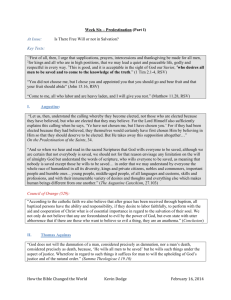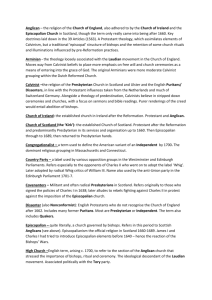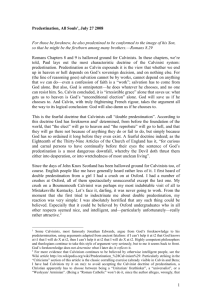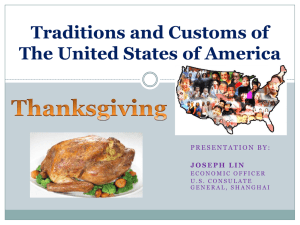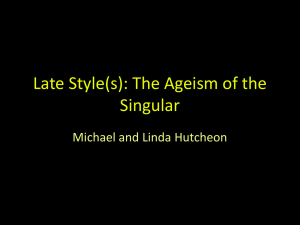uritanism Review PPT
advertisement
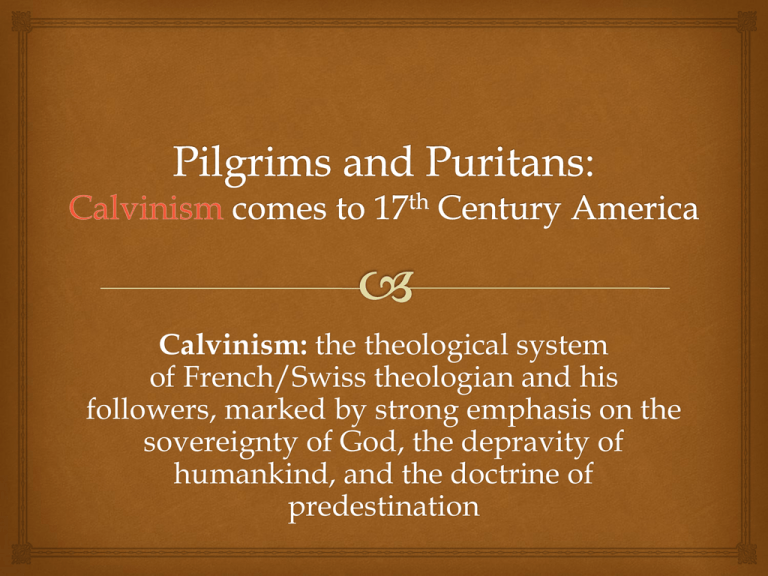
Calvinism: the theological system of French/Swiss theologian and his followers, marked by strong emphasis on the sovereignty of God, the depravity of humankind, and the doctrine of predestination Calvinist Groups Pilgrims: Totally separated from the Anglican Church (the governmentestablished, Protestant Church of England); generally poorer than Puritans. 1. started in Yorkshire, England 2. went to Holland 3. sailed Mayflower to Plymouth Calvinist Groups Puritans: wished to reform the Anglican Church from within; followed the Pilgrims to New England and established Massachusetts Bay Colony Calvinist Groups (cont.) All came to New World to establish a theocracy – a colony with laws based on their religious beliefs Calvinist Beliefs (Tenets) Calvinist Tenets – the basic religious beliefs of the Pilgrims/Puritans Absolute sovereignty of God: God is all-powerful and controls everything Predestination: an omniscient Deity knows from the beginning who will be “saved” – have eternal life in heaven Tenets (cont.) Providence: God intervenes directly in the world Natural Depravity: Since Adam’s fall, all humans are born in sin and deserve damnation Tenets (cont.) . Election: Through God’s mercy, a few people are “saved,” but by the grace of God alone and not through their own behavior or works. One hoped one was one of the “Elect” (the term for those who were saved), and one lived the life of a saved person, constantly searching one’s soul for signs of “grace”; but there was really nothing one could do to change God’s plan for one’s immortal soul. (Note: This most extreme of Puritan/Calvinist doctrines was dropped by the early 1700s and was not a part of Edwards’ theology or of other later Calvinists.) Tenets (cont.) Evil is inner: Man needs reform of himself, rather than of institutions (such as schools, prisons, government, etc.) God is revealed in the Bible (and nowhere else, such as in nature) Decline of New England Theology 1643: 11% church membership Preaching of the “Jeremiad” type of sermon: jeremiads bemoan their communities’ fall from grace, they also read the misfortunes and punishments that result from that fall as paradoxical proofs of God’s love and of the group’s status as his “chosen people.” 1657: Half-Way Covenant Secularized state Decline of Puritanism (cont.) 1677: Stoddardeanism: Very open Communion Secularized church 1691: Massachusetts a Royal Colony No religious bans 1692: Salem Witch Trials 05/02/2010 13 Result of Decline Religious Revival known as the Great Awakening Itinerant preachers told people they could be saved by a “conversion experience,” or else be damned to eternity in Hell (different from old idea of Predestination) Result of Decline Rise of other religious groups such as Quakers Rise of Deism (set of beliefs held by many Revolutionaries)




